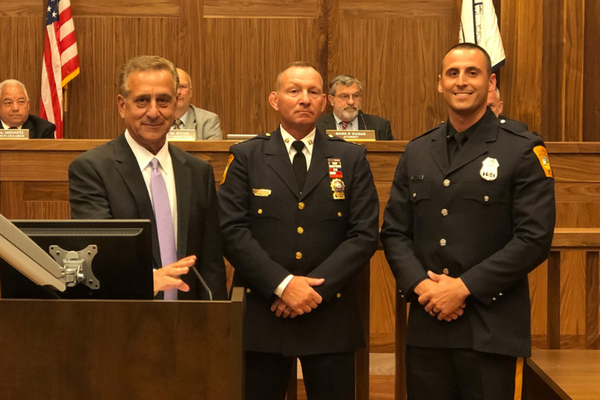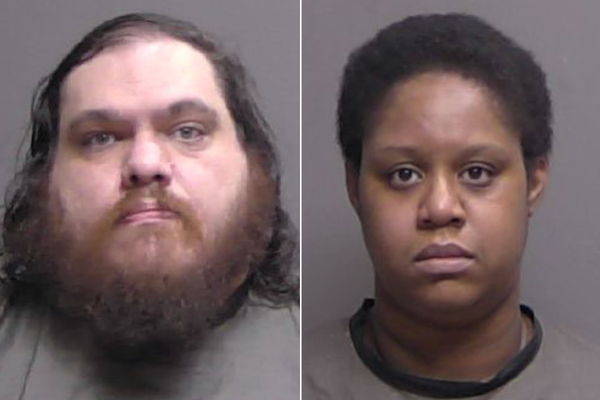
Noy Katsman knew the eulogy for their murdered brother would anger some who came to mourn, but did not want the violence of Hayim Katsman’s death to eclipse his life as a peace activist.
Grief and loss at Hayim’s slaughter was magnified by watching Israel launch a war in his name, said Noy, who is non-binary. So at the funeral, relying on a Jewish tradition of respect for the bereaved, Noy called for it to stop.
“Do not use our death and our pain to bring the death and pain of other people and other families,” Noy told the hundreds-strong crowd, as the government bombed Gaza and prepared for a massive ground invasion. “I have no doubt that even in the face of Hamas people that murdered him … he would still speak out against the killing and violence of innocent people.”
Arguing against retaliation in Gaza, as Israel reels from the scale and brutality of the massacres by Hamas on 7 October, is unpopular. At one point in the eulogy the mourners tutted in anger and disapproval.
But afterwards Hayim’s friends came to thank Noy. “One told me: ‘It’s exactly what your brother would have wanted you to say.’”
Hayim and Noy are part of Israel’s relatively small community of leftists, peace activists and human rights campaigners, people who broadly believe their country cannot fight its way to peace.
They were hit particularly hard, personally and politically, by the massacres on 7 October, as Hamas militants targeted places that were historically centres of leftist zionism, where many have friends and relatives.

“In the communities affected in the south, the kibbutzim, where people were injured and kidnapped and slaughtered by Hamas, so many of them fought for peace, so many of them were dreaming of a different future,” said Avner Gvaryahu, the executive director of Breaking the Silence, a group founded by Israeli combat veterans to document military abuses in the occupied Palestinian territories.
“There are members of all the leading human rights organisations that are kidnapped or dead or injured or traumatised.”
Hayim was one of the former IDF soldiers who testified for Breaking the Silence, which is banned from Israeli schools, has been vilified by many in the government and faced arson attacks for its work.
An academic who researched the religious right in Israel, he spent time with Palestinian farming communities in the occupied South Hebron hills, offering through his presence some protection from the Israeli military, police and settlers in the area.
Other victims from the kibbutzim clustered close to Gaza include Shlomi and Shachar Matias, a couple who helped found a bilingual school that taught children in Hebrew and Arabic, under the slogan: Jewish Arab education for equality.
Vivian Silver, a core member of Women Wage Peace, was taken hostage in Gaza. She also helped organise travel for Palestinians in Gaza given rare permission to leave the strip for medical treatment. Several others from that group are believed to be with her, including Oded and Yochka Lifshitz, who are in their 80s.
In the climate of anger and widespread support for war, activist relatives of the dead and missing are trying to navigate both grief and public advocacy, as Noy did.
“I was there,” Ziv Stahl, the executive director of human rights group Yesh Din, wrote in an editorial for Haaretz, of her hours hiding in a safe room with an injured relative. “I have no need of revenge, nothing will return those who are gone. All the military might on Earth will not provide defence and security. A political solution is the only pragmatic thing that is possible.”
For those whose relatives are held hostage in Gaza, there is an added agony to watching Israeli airstrikes on the strip. Neda Heiman, who also works with Women Wage Peace, lost contact with her 84-year-old mother, Ditza Heiman, early on that Saturday morning.
She later saw her in a video, being forced on to a truck by Hamas gunmen and driven towards Gaza. “I still think that only a political solution can solve the problems,” she says, “Bombing Gaza cannot be a permanent solution … We have been there, done that.”
It is not a message getting much airtime in Israel. Noy has given more than 20 interviews about that speech, about Hayim’s work and their own activism. Not a single request has come from Israeli media.
Still, Noy took comfort in online support from both Israelis and people who said they were in Gaza. “I just wanted to tell you how sorry I am for what happened to your brother, and I want to thank you a lot for not wanting us dead like everyone else,” wrote one.
A country that considered its military and intelligence services among the most feared and effective in the world has been devastated by their catastrophic failures. Activists say that the security failings of 7 October were rooted in far deeper failure of political vision – and if that is not addressed, Israel will never be safe.
“You see this pain being used to go in a worse direction that promises us nothing but more pain, more blood, more loss,” said Alon-Lee Green, a board member of Standing Together, a grassroots movement of Jewish and Palestinian citizens of Israel.
“As a state we have the right to defend our citizens from being slaughtered, but we have to answer the very fundamental question: And then what? We conquer the Gaza Strip, and then what?”
Historic arguments?
The left has been a diminishing force in Israel’s politics for decades. In elections in 1992, two parties of the left, Labor and Meretz, got nearly half the vote between them; in the last polls Meretz did not make it into parliament and Labor was down to a single-digit portion of the vote.
Over 20 years, Israel’s right wing has slowly picked apart a broad if reluctant consensus that the path to long-term security was a negotiated resolution with Palestinians, to form two neighbouring states.
In 2003, as the second intifada raged, even the then prime minister, Ariel Sharon, a hawk who had backed settlements in Gaza and the West Bank, argued that Israel could not occupy Palestinian land indefinitely. Sharon had a stroke soon after overseeing Israel’s disengagement from Gaza in 2005.
Netanyahu consolidated his power in part by arguing that Israel could contain Gaza and manage its occupation of the West Bank. Support for a two-state solution crumbled, as Israel built bridges to regional states that once refused to recognise its existence. In recent pre-election polls, security was low on the list of voters’ concerns – the top was the economy.
Many of the massacre’s survivors and bereaved people said they felt abandoned by a government that knew it had few voters in the areas near Gaza. Under Netanyahu, military funds and attention had been shifted to the West Bank and the settler outposts there that were a priority for his voters and allies.
Their warnings went unheard, but now their anger and frustration may be more widely shared. A recent poll commissioned by the Jerusalem Post found that about four in five Israelis blame Netanyahu for the massacres, and most think he should resign when the war is over.
Less clear is whether they are questioning only the man, or also the model of security he offered them.
“For a decade plus we have been telling ourselves fairy tales, that we can ignore the fact that we are controlling millions of people by force,” said, Gvaryahu of Breaking the Silence. “That has totally burst.
“This conception that we can ignore an occupation, ignore that there are millions in Gaza without rights, millions in the West Bank without rights,” he added. “This could be a moment that will cement it, or this might be a moment when we could help change the tide. That is the biggest challenge ahead.”
• The subheading of this article was amended on 19 October 2023 to remove a reference that “few Israelis” were arguing against revenge.







